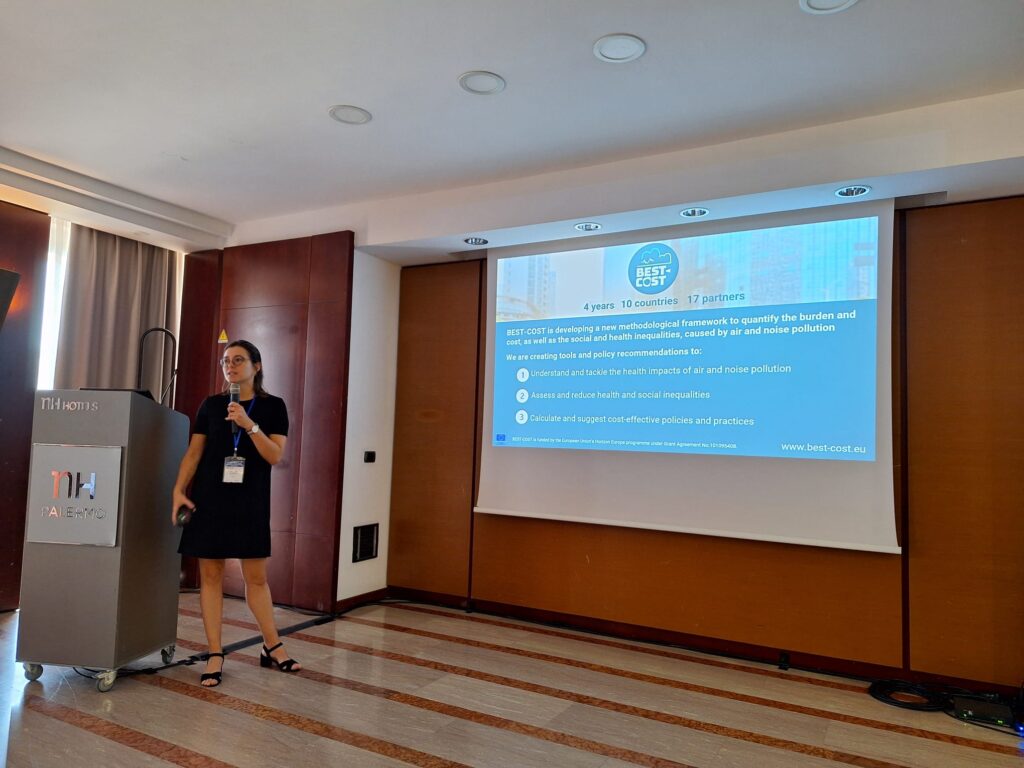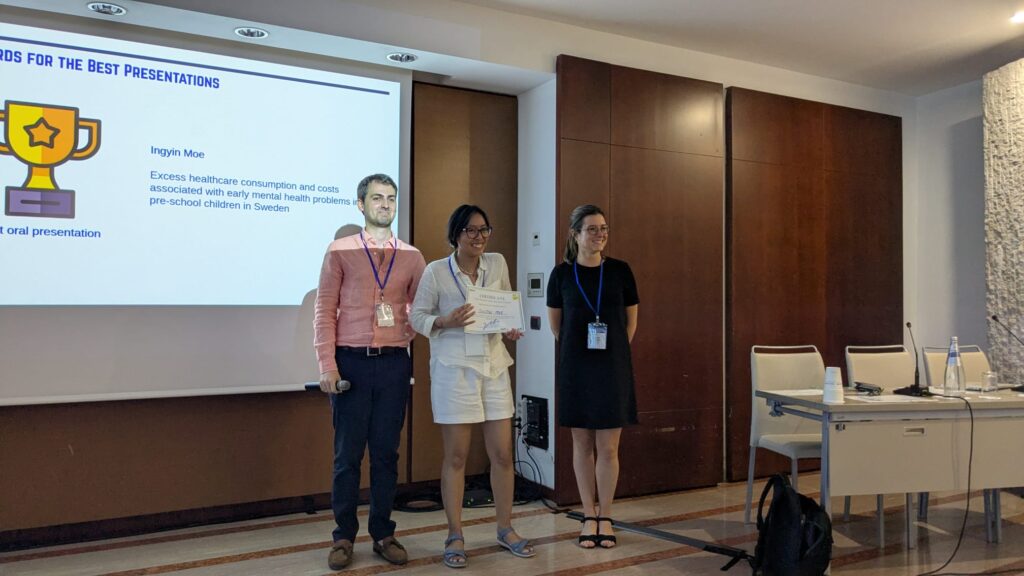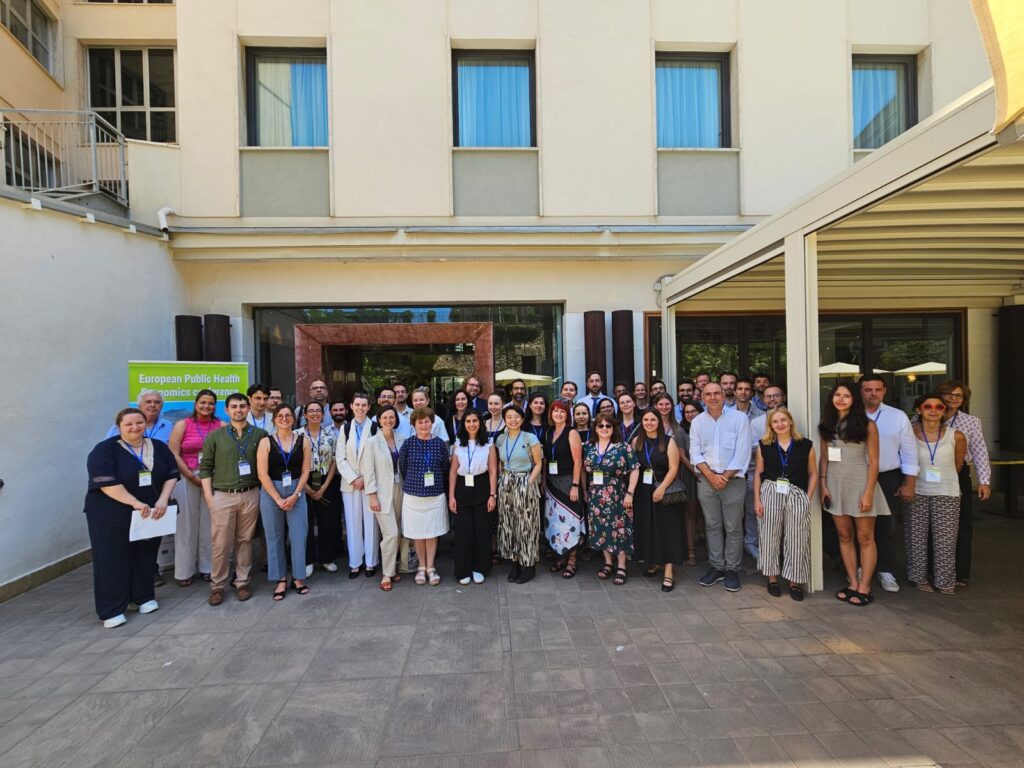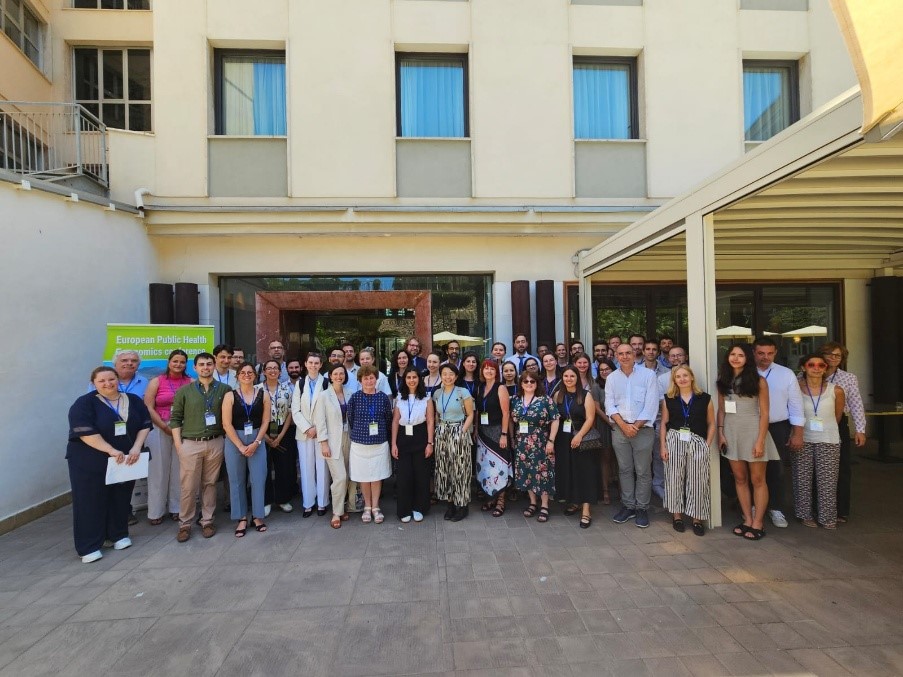BEST-COST researchers Vanessa Gorasso (Sciensano), João Vasco Santos (University of Porto), Andreia Novais (University of Porto), and Vera Pinheiro (University of Porto) were part of the organising team behind the first edition of the European Public Health Conference. They reflect on their highlights from the conference, and what is next for public health economics when addressing the health impacts of climate change.

Until recently, health economics was little considered in the broader field of European public health. But placing economics within a health context is key to improving public health policies, as it can provide us with tools to explore intersecting areas of public health. Economic evaluation methods help us better understand the cost and value of different public health interventions. This, in turn, allows us to identify the most effective ones to reduce the overall disease burden, improve quality of life for many, and make optimal use of limited health budgets.
The first-ever European Public Health Economics Conference took place in the Italian city of Palermo in June of this year, and was organised with the support of BEST-COST. As a first edition, the response was overwhelming, with more than 100 abstracts submitted and over 70 people in attendance. Highlights included the conference’s keynote speech on the interconnection between health equity and climate change, delivered by Dr. Miqdad Asaria from the London School of Economics. He emphasised the role of economic tools in revealing and redressing the structural imbalances that affect the most vulnerable populations. There was also a clear appreciation of intergenerational learning, with early-career researchers and senior professionals sharing the stage for a vibrant and inclusive environment that fostered mutual learning and mentorship.
As outlined in Dr. Asaria’s speech, public health economics can play a critical role in climate policy. As extreme weather events become more frequent and environmental conditions worsen, we are already seeing a rise in heat-related illnesses, respiratory and cardiovascular diseases due to air pollution, the spread of vector-borne diseases, and growing mental health.

Another highlight of the event was the plenary session organized by researchers of BEST-COST on health monetisation methods. This presentation provided the audience with a theoretical framework on how to monetise health benefits, as well as with practical examples and steps of how to apply some of the most used approaches. BEST-COST’s contribution to this topic and its main outcomes were also presented, including the R package healthiar.
Public health research can use many of the techniques and methods that are now common in health economics. For example, simulation models have long been used in pharmacoeconomics to evaluate the value of new drugs and are now increasingly applied to evaluate disease prevention strategies. Incorporating economic analysis into public health strengthens the case for proactive, evidence-based policies. It helps communicate the urgency of climate-related health issues to policymakers by translating health impacts into concrete financial terms, so that they can make informed choices when creating environmental legislation.

This growing momentum of health economics is proving increasingly valuable, not only for understanding and mitigating the health impacts of climate change, but also for addressing some of the other biggest health challenges. These include new technologies, population ageing, the prevention of non-communicable diseases, and pandemic preparedness.
BEST-COST researches how to better measure the socioeconomic consequences of environmental stressors, including by developing methods and collecting data on willingness-to-pay for health outcomes, which will be applied to environmental stressors, as part of its research. Creating more consistent and comparable assessments of the economic value of public health interventions can help us build a cross-sectoral understanding of the health impacts of climate change. This, in turn, can inform policymakers about the European valuation of health.

So, what lies in the near future for public health economics? The aim is to host the Public Health Economics Conference every two years, with the support of EUPHA, to continue bringing the community together. As part of the role of the EUPHA-ECO section, we continue to encourage abstract submissions to the economics track of the annual European Public Health Conference taking place in Helsinki in November 2025. In this same event, BEST-COST will support a pre-conference on causal inference methods, complemented with example applications including cost-of-illness studies.
The conference’s success was due to a collaborative effort within and outside the EUPHA-ECO section. It was possible thanks to the collaboration with EUPHA−providing financial and logistical support− the University of Palermo, SiTi, AIES, and BEST-COST.
References
- Weilnhammer, V., Schmid, J., Mittermeier, I., Schreiber, F., Jiang, L., Pastuhovic, V., Herr, C., & Heinze, S. (2021). Extreme weather events in europe and their health consequences – A systematic review. International journal of hygiene and environmental health, 233, 113688. https://doi.org/10.1016/j.ijheh.2021.113688
- Georgia K Chaseling, Izabella Uchmanowicz, Maria Bäck, Òscar Miró, Maryia Tokmakova, Petter Ljungman, Jari Laukkanen, Rosa Maria Bruno, George Ntaios, Bianca Rocca, Ollie Jay, Lacy M Alexander, W Larry Kenney, Philip Moons, Heat extremes and cardiovascular diseases: a scientific statement of the Association of Cardiovascular Nursing & Allied Professions, Association for Acute Cardiovascular Care, European Association of Preventive Cardiology, Heart Failure Association, European Heart Rhythm Association of the ESC, the ESC Council on Hypertension, the ESC Council on Stroke, and the ESC Working Group on Cardiovascular Pharmacotherapy, European Heart Journal, Volume 46, Issue 30, 7 August 2025, Pages 2950–2958, https://doi.org/10.1093/eurheartj/ehaf326
- Alqassim, A. Y. (2025). Differential Impacts of Extreme Weather Events on Vector-Borne Disease Transmission Across Urban and Rural Settings: A Scoping Review. Healthcare, 13(19), 2425. https://doi.org/10.3390/healthcare13192425



